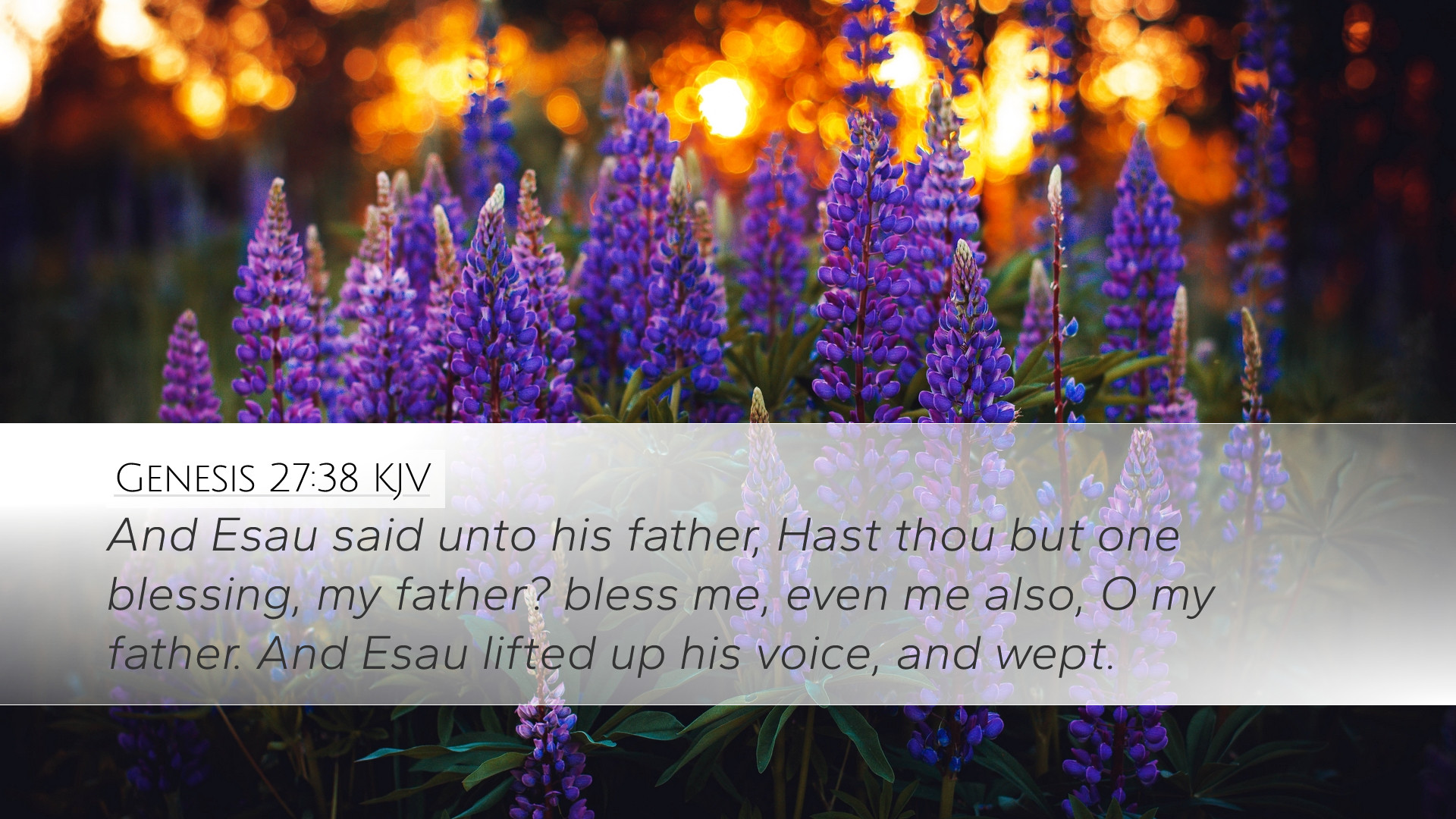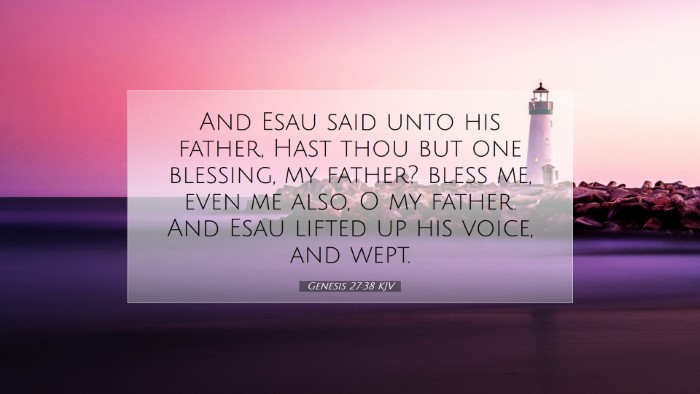Commentary on Genesis 27:38
Genesis 27:38 states, “And Esau said unto his father, Hast thou but one blessing, my father? bless me, even me also, O my father. And Esau lifted up his voice, and wept.” This pivotal moment in the narrative serves as a profound study of the themes of blessing, deception, family dynamics, and the consequences of choices.
Context and Background
To fully understand the import of Esau's plea, one must consider the context of the passage. The blessings in ancient Israel were not merely words; they were understood as conferring both status and divine favor. The rivalry between Esau and Jacob, ordained by God even before their birth (Gen. 25:23), reaches its climax here. Jacob, through his mother Rebekah’s scheming, has deceived Isaac into giving him the blessing that was rightfully Esau's.
The Significance of Esau's Cry
- Desperation and Regret: Esau’s request, “Hast thou but one blessing?” is emblematic of his desperation. It reflects not only his emotional state but also his realization of the irreversible nature of Jacob’s acquisition of the birthright.
- Emotional Outburst: The lifting up of his voice and weeping showcases the depth of his sorrow. There is a profound lesson here concerning the gravity of loss and the pain that often accompanies betrayal, a theme echoed throughout Scripture.
Insights from Commentators
Matthew Henry:
Henry indicates that Esau’s cry reveals his understanding of the blessing’s importance, noting that “the blessings of our parents are among the best gifts we can receive in this world.” His anguish serves as a reflection of the consequences of trading spiritual merit for immediate gratification, as seen in his previous decision to sell his birthright.
Albert Barnes:
Barnes elaborates on the implications of the blessing not being revocable, stressing the weight of the paternal blessing in that culture. He points out Esau's genuine sorrow and profound disappointment, suggesting that this moment signifies a turning point for Esau, one that foreshadows future estrangements and the deep scars left by familial conflict.
Adam Clarke:
Clarke adds an important cultural perspective, noting that Esau’s earnest appeal reveals how deeply he yearned for the paternal blessing which conferred divine favor and prosperity. He highlights that Esau’s emotional display is characteristic of his later life choices, illustrating the ongoing struggle of wanting but never fully achieving spiritual fulfillment.
Theological Implications
This moment in Genesis 27 serves as a poignant reminder of God’s sovereignty and the complexities of human relationships. From a theological viewpoint, it portrays God’s ultimate control over human affairs, despite human sin and frailty. God’s election of Jacob over Esau (Romans 9:10-13) raises questions regarding divine choice, election, and mercy, underscoring the concept that blessings are ultimately determined by God’s will rather than human endeavor.
Application for Modern Readers
- Understanding Blessings: Modern readers are encouraged to reflect on the nature of blessings in their own lives. It is crucial to discern the value of spiritual over material blessings.
- The Consequences of Actions: This passage serves as a warning against deception and manipulation within familial relationships. It calls for integrity, urging the faithful to consider the long-term repercussions of their actions.
- The Role of Emotions: Esau’s emotional response can lead to a deeper understanding of how grief, regret, and longing can shape our faith journeys.
Conclusion
In conclusion, Genesis 27:38 encapsulates a moment rife with emotion and theological significance. As pastors, students, theologians, and Bible scholars reflect on this passage, it is vital to embrace its lessons about the power of blessings, the complexity of human relations, and the depth of God's grace in the face of human flaws. Esau’s cry for blessing is not just a plaintive appeal; it is a narrative that invites deep introspection, calling us to consider how we seek and value divine favor in our lives.


